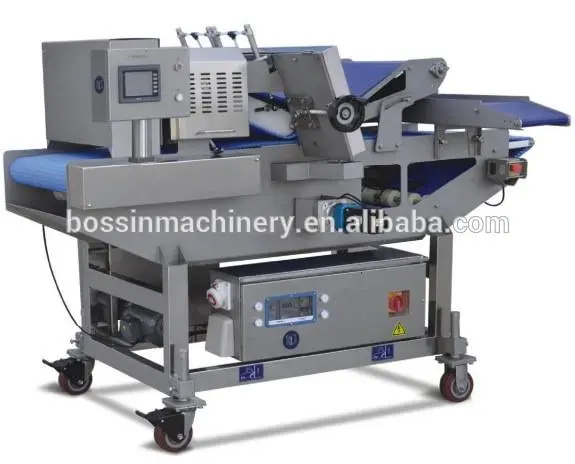
Aug . 09, 2024 23:50 Back to list
Innovative Dry Coating Solutions for Enhanced Burger Production Efficiency and Quality
The Importance of Dry Coaters for Burger Manufacturers
In the ever-evolving landscape of the food industry, burger manufacturers are continuously seeking ways to enhance product quality, streamline production processes, and meet consumer demands for healthier options. Among the various innovations, the introduction of dry coaters has emerged as a game-changer for the burger manufacturing sector. A dry coater is an essential piece of equipment that applies dry coatings to food products, significantly improving texture, flavor, and overall quality.
What is a Dry Coater?
A dry coater is a specialized machine designed to apply dry ingredients, such as breadcrumbs, seasoning, and coatings, onto food products like burger patties. Unlike traditional methods that may involve wet coatings, which can alter the texture and moisture content of the product, dry coating processes ensure that the integrity of the burger is maintained. This technology is particularly beneficial in the production of both frozen and fresh burgers, allowing manufacturers to cater to a wide range of consumer preferences.
Benefits of Using Dry Coaters
1. Improved Texture and Flavor One of the primary advantages of using a dry coater is the enhancement of the texture and flavor of the burgers. The even application of dry coatings ensures that every bite is consistent in taste and mouthfeel. This is particularly important for consumers who are looking for quality in their dining experience.
dry coater for burger manufacturers

2. Healthier Options As health-conscious consumers continue to rise, burger manufacturers must innovate to meet these demands. Dry coaters can utilize healthier ingredients, such as whole grain breadcrumbs or gluten-free options, providing manufacturers the flexibility to create a variety of health-oriented products. Additionally, because dry coatings often require less oil compared to wet coatings, this can lead to lower fat content in the final product.
3. Enhanced Shelf Life Applying dry coatings can also help improve the shelf life of burger products. By providing a protective layer, dry coatings can reduce moisture loss and help in retaining the freshness of the patties. This not only benefits the manufacturer by reducing waste but also appeals to retailers aiming for products that maintain quality over time.
4. Efficiency in Production The incorporation of dry coaters into the manufacturing line can significantly enhance production efficiency. These machines are designed for high-speed operations, allowing for continuous processing without compromising on quality. This efficiency can lead to reduced labor costs and increased output, directly impacting the bottom line of burger manufacturers.
5. Customization and Variety Dry coaters offer manufacturers the ability to experiment with different flavors and textures. By altering the types of coatings used, burger producers can create unique offerings that cater to specific markets, such as spicy, herb-infused, or even gourmet varieties. This level of customization can help manufacturers stay competitive in a crowded marketplace.
Conclusion
As consumer preferences continue to shift towards healthier, more flavorful food options, the role of technology in food production becomes increasingly important. Dry coaters have proven to be a vital tool for burger manufacturers looking to enhance product quality, improve production processes, and meet the evolving demands of consumers. By investing in this technology, manufacturers not only improve their product offerings but also position themselves for success in a competitive industry. The integration of dry coaters is not just a trend; it’s a fundamental shift in how burger patties are crafted and enjoyed. With this innovative equipment, manufacturers can ensure that every burger produced is not only delicious but also aligns with the health-conscious trends of today’s consumers.